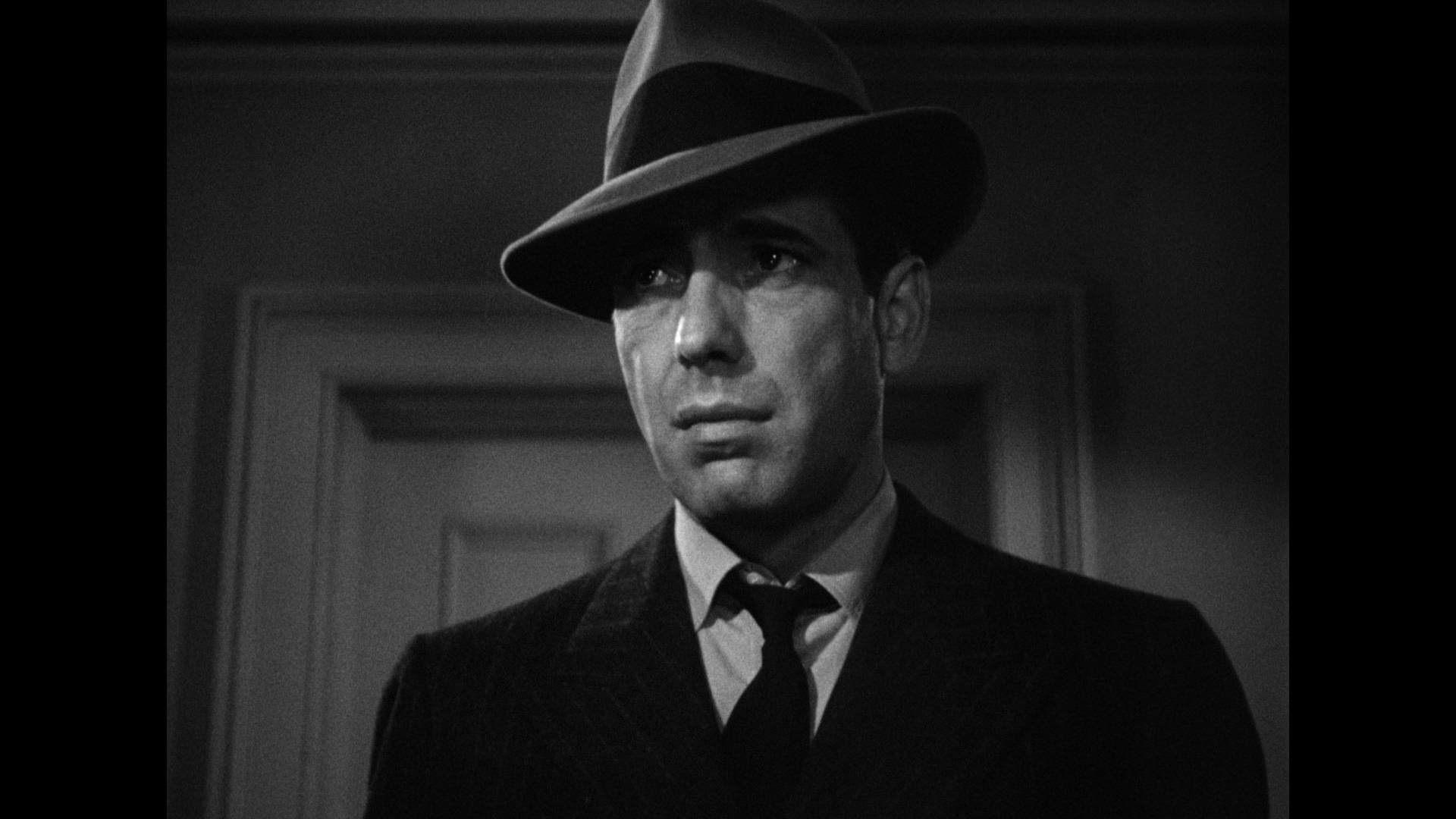
"Hmm, Bogie". That's what Jean-Paul Belmondo's character in "Breathless" silently utters to himself as he spots a "The Harder They Fall" poster on his way out of the cinema. That pretty much explains in a nutshell the influence that Humphrey Bogart has had on cinema. That moment was a kind of passing of the torch. Godard's French New Wave masterpiece is known as the first "modern" movie in the history of cinema. No coincidence it is heavily influenced by Bogart's movies, specifically "The Maltese Falcon." Directed by John Huston, this 1940 masterpiece featured an astonishing performance from Bogart as Samuel Spade, a private eye that enters a case that involves three eccentric criminals, a gorgeous pathological liar, and a golden statuette that everybody wants a piece of. To find out that this timeless classic turns 75 years of age today is to be reminded of just how ageless the film really is.
Huston and Bogart put any sort of plot in the backseat, instead focusing on character. What we get is the story of a man that isn't your typical hero, and in fact, he isn't a hero at all. Spade is a man who has his own moral code. His own rules of the game. The whodunit becomes less important than how we respond to the characters. That's what makes "The Maltese Falcon" a classic. We see more and appreciate more every time we watch it.
Although 1940's "Stranger on the Third Floor" is known as the first official "film noir" I tend to credit Huston for shaping and molding the genre right down to its quintessential core a year later with "Falcon."
For Huston, telling this story posed a problem. Telling it straight wouldn't do it justice – there were too many twists, too much baggage. Plot seemed to be irrelevant here. The vulnerable director decided to, riskily, focus on character and dialogue. One way to appreciate Huston's choices is to LISTEN to the movie. Hear the voices. Notice how Huston relies on the exotic accents of his characters to keep us interested. Could we endure the scene in which main villain Kasper Guttman explains the history of the Maltese falcon unless his clipped, somewhat prissy English accent held our attention? Same with Joe Cairo, his criminal associate and a man with almost indescribable accent. There are clues throughout that the three male villains of the piece might also be gay. Cairo is mocked by Spade for having a "perfumed Handkerchief" and we all know what that meant back in 1941.
All of this leads to the ending, a few minutes of screen time in which more goes on, gesture by gesture, than a movie today could convey in a million words. Bogie's Samuel loves his dame, maybe, but he won't be a "sucker." Bogart plays Spade rough, playful and with more than his fair share of demons stirring up inside him. That we never see these demons makes Huston's film all the more haunting.
When the film is done we're left with the memory of Spade: a man whose sense of justice and moral code might conflict with our own, but at least he's loyal with his code. Take this for example: Spade didn't much like his murdered partner to begin with - after all, he had an affair with his partner's wife. But he wanted to find the person who ousted him. "When a man's partner is killed, he's supposed to do something about it.” he exclaims. It seems to be a street code, a rule of the game for Spade, even if it means bringing the woman he loves to jail. With all the harsh things Spade is capable of doing, we still respect him for sticking to the set of rules he has chosen to live by, his moral obligations. He seems to be living in his own world of ethics and scenery and it makes it all the more fascinating to watch.




